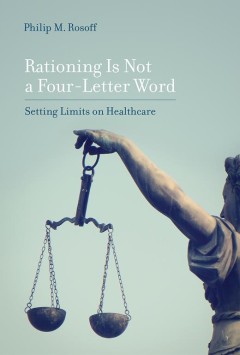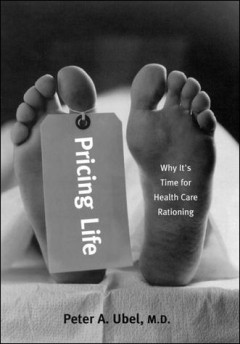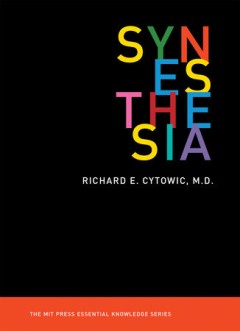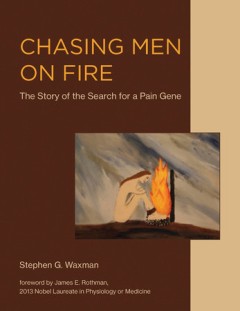Filter by

Rationing is not a four-letter word : setting limits on healthcare
"Most people would agree that the healthcare system in the United States is a mess. Healthcare accounts for a larger percentage of gross domestic product in the United States than in any other industrialized nation, but health outcomes do not reflect this enormous investment. In this book, Philip Rosoff offers a provocative proposal for providing quality healthcare to all Americans and controll…
- Edition
- -
- ISBN/ISSN
- 0262320762
- Collation
- 1 online resource (xiv, 320 pages).
- Series Title
- -
- Call Number
- -

Good Science: The Ethical Choreography of Stem Cell Research
After a decade and a half, human pluripotent stem cell research has been normalized. There may be no consensus on the status of the embryo -- only a tacit agreement to disagree -- but the debate now takes place in a context in which human stem cell research and related technologies already exist. In this book, Charis Thompson investigates the evolution of the controversy over human pluripotent …
- Edition
- -
- ISBN/ISSN
- 9780262319034
- Collation
- 1 online resource.
- Series Title
- -
- Call Number
- -

Pricing life :why it's time for health care rationing
A rational look at health care rationing, from ethical, economic, psychological, and clinical perspectives. Although managed health care is a hot topic, too few discussions focus on health care rationing—who lives and who dies, death versus dollars. In this book physician and bioethicist Peter A. Ubel argues that physicians, health insurance companies, managed care organizations, and gover…
- Edition
- -
- ISBN/ISSN
- 9780262285346
- Collation
- 1 online resource (xix, 208 pages).
- Series Title
- -
- Call Number
- -

Pricing the priceless :a health care conundrum
The health care industry differs from most other industries in that medical pricing is primarily administered by the government and private insurers and in that it uses several types of contracts. Providers may receive a fixed sum for all necessary services within a given period of time, for the necessary services to treat a given condition, or for each specific service. The industry is changin…
- Edition
- -
- ISBN/ISSN
- 9780262280600
- Collation
- 1 online resource (viii, 258 pages) :illustrations.
- Series Title
- -
- Call Number
- -

Kesehatan Seluler
Sasan Adibi (BS’95, MS’99, MS’05, PhD’10, SMIEEE’11) has a PhD degree in Communication and Information Systems from University of Waterloo, Canada and the recipient of the best PhD thesis award from the IEEE Society. He is currently involved in the research, design, implementation, and application Electronic Health (eHealth) and Mobile Health (mHealth). Sasan’s research publication …
- Edition
- 1
- ISBN/ISSN
- 978-3-319-12816-0
- Collation
- XI, 1172
- Series Title
- Springer Series in Bio-/Neuroinformatics
- Call Number
- -

Synesthesia
An accessible, concise primer on the neurological trait of synesthesia—vividly felt sensory couplings—by a founder of the field. One in twenty-three people carry the genes for the synesthesia. Not a disorder but a neurological trait—like perfect pitch—synesthesia creates vividly felt cross-sensory couplings. A synesthete might hear a voice and at the same time see it as a color or sh…
- Edition
- -
- ISBN/ISSN
- -
- Collation
- -
- Series Title
- -
- Call Number
- -

Young, Female and Black
Young black women bear all the hallmarks of a fundamentally unequal society. They do well at school, contribute to society, are good efficient workers yet, as a group they consistently fail to secure the economic status and occupational prestige they deserve. This book presents a serious challenge to the widely held myth that young black women consistently underachieve both at school and in the…
- Edition
- -
- ISBN/ISSN
- 9780203976883
- Collation
- 252 halaman
- Series Title
- -
- Call Number
- 370 MIR y

Building Ontologies with Basic Formal Ontology
Providing an introduction to the field of applied ontology that is of particular relevance to biomedicine, this thorough book covers theoretical components of ontologies, best practices for ontology design, and examples of biomedical ontologies in use. --OCLC-licensed vendor bibliographic record.
- Edition
- -
- ISBN/ISSN
- 0262329581
- Collation
- 1 online resource
- Series Title
- -
- Call Number
- -

Chasing Men on Fire: The Story of the Search for a Pain Gene
A thirty-year quest, from genes to pain-signaling neurons to people with a rare genetic disorder that makes them feel they are on fire. Two soldiers, both with wounds injuring the same nerve, show very different responses: one is disabled by neuropathic pain, unable to touch the injured limb because even the lightest contact triggers excruciating discomfort; the other notices numbness but no…
- Edition
- -
- ISBN/ISSN
- 9780262344722
- Collation
- -
- Series Title
- -
- Call Number
- -

Choosing Down Syndrome: Ethics and New Prenatal Testing Technologies
An argument that more people should have children with Down syndrome, written from a pro-choice, disability-positive perspective. The rate at which parents choose to terminate a pregnancy when prenatal tests indicate that the fetus has Down syndrome is between 60 and 90 percent. In Choosing Down Syndrome, Chris Kaposy offers a carefully reasoned ethical argument in favor of choosing to have …
- Edition
- -
- ISBN/ISSN
- 9780262345729
- Collation
- -
- Series Title
- -
- Call Number
- -
 Computer Science, Information & General Works
Computer Science, Information & General Works  Philosophy & Psychology
Philosophy & Psychology  Religion
Religion  Social Sciences
Social Sciences  Language
Language  Pure Science
Pure Science  Applied Sciences
Applied Sciences  Art & Recreation
Art & Recreation  Literature
Literature  History & Geography
History & Geography